Move-Up Math: What Can You Really Afford in Today's Toronto Market?

Published August 20, 2025 | By Marina Paul, Toronto Move-Up Home Specialist
Let's be honest – figuring out what you can afford when moving up in Toronto feels like trying to solve a Rubik's cube while riding a unicycle. In the dark. During an earthquake.
But here's the thing: I've helped hundreds of families crack this code, and I'm about to share the insider math that makes it all click. Grab your calculator (or just use your phone like a normal person), and let's dive into the real numbers that determine whether your move-up dreams are actually within reach.
The Great Canadian Mortgage Myth Buster
First things first – let's destroy the biggest misconception floating around Toronto dinner parties: "We can afford whatever the bank pre-approves us for."
Record scratch. Freeze frame.
Nope. Just... nope.
Banks will gleefully approve you for an amount that assumes you'll eat nothing but ramen noodles and never take another vacation. They're thinking about their risk, not your sanity or your kids' summer camp fund.
The real affordability equation looks more like this:
What Banks Think You Can Afford = Maximum possible payment based on income ratios
What You Can Actually Afford = Maximum payment that still lets you sleep at night
With mortgage renewals hitting families hard – averaging 10% payment increases for those renewing in 2025-26 – this distinction has never been more important.
The Move-Up Math Formula That Actually Works
Here's my tried-and-true formula that keeps families happy instead of house-poor:
Step 1: The Reality Check Calculation
Start with your current gross household income and multiply by 4.5. In today's Toronto market with prime rates around 4.70%, this gives you a realistic maximum purchase price that won't leave you surviving on instant coffee and tears.
Example: Combined income of $200,000 = $900,000 maximum purchase price
But wait – there's more! (And by "more," I mean "math that might make you cry.")
Step 2: The Equity Reality Check
Your current home's equity isn't all fun money for your upgrade. Here's the breakdown that'll make your head spin:
Current Home Value: $1,100,000
Remaining Mortgage: $650,000
Gross Equity: $450,000
Sounds great, right? Hold that thought.
Real Estate Commission (5-6%): $60,000
Legal Fees: $3,000
Moving Costs: $5,000
Staging/Repairs: $8,000
The "Oh Crap" Fund: $10,000
Net Equity Available: $364,000
See what happened there? Your "$450,000 in equity" just became $364,000 faster than you can say "land transfer tax."
Step 3: The Land Transfer Tax Gut Punch
Ah, the beloved Toronto Land Transfer Tax – because apparently, the provincial tax wasn't painful enough. For our $1,500,000 move-up purchase:
Provincial LTT: $21,475
Toronto Municipal LTT: $21,475
Total LTT: $42,950
That's almost $43,000 just for the privilege of buying in Toronto. You're welcome.
The Hidden Costs That Make Accountants Weep
Let's talk about the expenses that mysteriously appear like teenagers raiding your fridge:
The "Bigger House, Bigger Bills" Reality
- Property Taxes: Your cute $1,100 starter home taxes? Adorable. Your $1,800,000 move-up home taxes will make you nostalgic for that smaller number
- Utilities: More square footage = higher bills. Shocking, I know
- Maintenance: That charming century home character comes with century home maintenance costs
- Insurance: Luxury features = luxury premiums
The Move-Up Miscellaneous Mayhem
- Home Inspection: $600-$800 (because surprises are only fun at birthday parties)
- Lawyer Fees: $2,000-$4,000 (for the purchase, because apparently selling wasn't enough)
- Mortgage Application Fee: $300-$500 (banks gotta eat too)
- Appraisal Fee: $300-$500 (to confirm what you already know it's worth)
Current Market Reality Check: The Good, Bad, and Ugly
Here's where things get interesting. Toronto home prices have tumbled to their lowest levels since early 2021, which sounds scary but is actually fantastic news for move-up buyers.
Why? Because if you're selling AND buying, the decrease affects both transactions. You're essentially trading sideways in many cases, but with more negotiating power than we've seen in years.
Detached home sales are up 8.7% year-over-year, and there are more listings, less competition, and improved conditions for buyers. Translation: You actually have choices and don't need to decide in 37 seconds while standing in someone's foyer.
The Stress Test That Actually Matters
Forget the bank's stress test – here's the Marina Paul stress test:
The "What If" Scenarios
- What if one of us loses our job for 6 months?
- What if interest rates go up 2% at renewal time?
- What if the furnace dies in January? (It will. They always do.)
- What if we decide to have another child?
- What if we want to take a real vacation this decade?
If your budget can handle these scenarios without requiring a GoFundMe campaign, you're in good shape.
The "Can We Actually Afford This" Test
Take your proposed new monthly payment and multiply it by 1.5. Can you swing that amount if life gets lifey? If not, dial back your expectations.
Mortgage Magic: Understanding Your Options
With analysts expecting the Bank to cut rates at least twice more in 2025, there are some strategic opportunities for move-up buyers:
The Variable vs. Fixed Dilemma
Variable Rates: Currently more attractive, with the lowest 5-year variable rate at 3.95%. Great if you can handle payment fluctuations and believe rates are heading lower.
Fixed Rates: Most forecasts predict fixed rates have hit a floor and will rise toward the end of 2025. Good for sleep-at-night peace of mind.
The Bridge Financing Consideration
Sometimes you need to buy before you sell. Bridge financing can work, but it's expensive – think 6-8% interest. Only consider this if:
- You're confident in your sale timeline
- The carrying costs won't bankrupt you
- You've found THE house and can't risk losing it
Real Talk: Sample Move-Up Scenarios
Let's look at three real-world examples (names changed to protect the financially vulnerable):
The Scarborough Success Story
Current Situation: $1,200,000 home in Scarborough, $400,000 remaining mortgage
Target: $1,800,000 home in Leslieville
Net Equity: $720,000
Required Down Payment: $360,000 (20%)
Verdict: Totally doable with room for error
The Etobicoke Enthusiasm
Current Situation: $950,000 condo, $350,000 remaining mortgage
Target: $1,600,000 house in High Park area
Net Equity: $540,000
Required Down Payment: $320,000
Monthly Payment Increase: $1,800
Verdict: Tight but manageable with solid incomes
The Mississauga "Maybe Not Yet"
Current Situation: $900,000 townhouse, $500,000 remaining mortgage
Target: $2,200,000 detached in Toronto
Net Equity: $350,000
Required Down Payment: $440,000
Shortfall: $90,000+
Verdict: Need more equity or lower expectations
The Move-Up Action Plan
Ready to run your own numbers? Here's your homework:
Week 1: The Financial Foundation
- Get a realistic home valuation (not Zestimate – actual professional opinion)
- Calculate your true net equity (don't forget those pesky selling costs)
- Review your current budget and identify areas where a higher mortgage payment fits
- Check your credit score (aim for 680+ for best rates)
Week 2: The Market Research
- Research your target neighborhoods (school ratings, commute times, coffee shops per square kilometer)
- Browse listings in your price range (prepare for sticker shock, then adjust expectations)
- Calculate property taxes for potential homes (Toronto's property tax calculator is your friend)
- Factor in utilities and maintenance costs for larger homes
Week 3: The Professional Consultation
- Meet with a mortgage broker who specializes in move-up scenarios
- Get pre-approved for your realistic budget (not maximum budget)
- Consult with a move-up specialist realtor (hint, hint)
- Review the timeline for your ideal move
The Bottom Line (Literally)
Here's the truth about move-up math in Toronto: It's complicated, expensive, and totally worth it when done right.
The key isn't finding the absolute maximum you can afford – it's finding the sweet spot where your new home improves your life without destroying your financial peace of mind.
With average residential sale prices down 3.5% year-over-year to $1,088,166 and more inventory available, move-up buyers have opportunities that didn't exist a year ago.
But remember: The best move-up purchase isn't the biggest house you can technically afford – it's the right house at the right price that fits comfortably in your life and budget.
Your future self (and your bank account) will thank you for doing the math correctly the first time.
Ready to Crunch Your Own Numbers?
I've created a Move-Up Affordability Calculator that takes all these factors into account – no complicated spreadsheets or late-night math anxiety required. It includes:
- Real equity calculations with all selling costs
- Current mortgage payment comparisons
- Property tax estimates for Toronto neighbourhoods
- "What if" scenario planning tools
Want access? Drop me a line, and I'll send it over along with a personalized assessment of your move-up potential in today's market.
Because honestly, life's too short for bad math and buyer's remorse.
Marina Paul is a Toronto real estate specialist focused on move-up buyers. She's helped over 300 families navigate the transition from starter homes to dream homes, and she's never met a calculator she didn't like. For a confidential consultation about your move-up math, contact Marina at 416-414-8496.
- The School District Dilemma: Timing Your Move-Up for Educational Success
- Winter Buying Advantages: Why February is Prime Time for Move-Up Purchases
- DECEMBER 2025: REAL ESTATE MARKET REPORT
- Move-Up Success Stories: How 5 Toronto Families Made Their Dream Upgrade
- New Year, New Home: January Market Advantages for Move-Up Buyers
